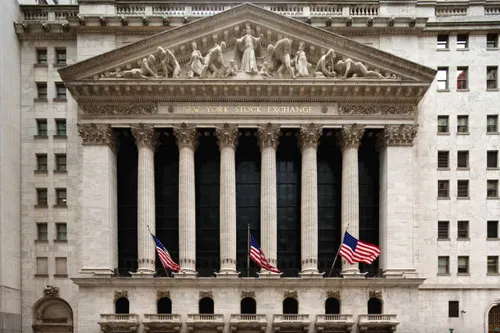The Constitution, or at least talking about the Constitution, is typically a centerpiece in many contemporary political discussions. This is especially true in the past few years, and in recent months it is not uncommon to see many wringing their hands that the US is undergoing what they call a constitutional crisis due to Donald Trump’s return to the presidency.
I would contend that we are indeed in the midst of a constitutional crisis, but not the kind that leftist pundits are discussing in the media.
Ultimately, there are always two constitutions that govern a society. There is the formal constitution, either a specific written document or a body of norms and traditions, and there is the informal, or rather, internal, constitution that governs the hearts of the people that make up said society.
The framework of the American Constitution, with its attempt to establish checks and balances and a system of decentralized federalism, is no doubt a solid work of applied political theory that attempts to establish an institutional environment conducive to an free, yet orderly, society.
But this institutional environment can only do so much. In the end, a constitution can only govern a people who themselves have established within themselves a constitutional disposition.
By constitutional disposition, I do not mean that one reveres and seeks to uphold the formal constitution. In the same way that a formal constitution seeks to establish limits on what the government is able to do, a constitutional disposition seeks to restrain and subdue man’s lower nature and supplant it with man’s higher nature.
This necessity of inner control is not always popular. It has been in vogue for the past 200 years to assert that the fundamental nature of man is good and pure, it has merely been corrupted by society or capitalism, or whatever else people tend to disfavor at the moment. Jean Jacques Rousseau, the French Enlightenment philosopher and intellectual father of the French Revolution, is the most influential of these thinkers in the modern age, though similar strains of thought can be found at various times in history all around the world.
For Rousseau, man in the state of nature is good but he has been corrupted by society. This is the logic behind his widely shared quote “Man is born free, but everywhere he is in chains”. This is the freedom of the “noble savage”. Rousseau sought to reclaim this freedom for man by rejecting limits and restraints and leaving man’s raw will unchecked.
Rousseau himself exemplified this in his personal life, notably chucking all his unfortunate children into horrible eighteenth century orphanages so that they would not interfere with his dissolute life. Children, family, marriage, norms, and customs are all the shackles holding him back from his innate goodness, don’t ya know?
In contrast to this Rousseauian spirit, there exists a much older and universally held understanding of morality. Under this older way of thinking, morality essentially boils down to the personal struggle to establish an inner check on one’s base appetites and desires, and, through long struggle, to elevate one’s higher nature. It is upon this self-discipline that all of civilization rests.
This mastery of one’s base appetites through inner moral struggle is an essential part of Plato’s Just Man, Aristotle’s Spoudaios, Confucius’ Junzi, and Stoic, as well as much early Christian, thought.
It is this self-mastery that forms a constitutional personality. Such a disposition helps to maintain and even spread order throughout all of society. Without such order, life in a free society is impossible, as disorder prompts instead the rule of the jungle and, in turn, efforts to restore order at any cost.
Unfortunately, the inner check is out, and Rousseauiann ”freedom” is in, these days.
While most people are unlikely to know much about Rousseau, his spirit lives on, seemingly more and more, in American culture today. The ethos of “if it feels good, do it” or “what’s the harm, I’m not hurting anyone” has become second nature to us.
Such an ethos is not conducive to the constitutional governance of society. It is little wonder that our formal constitution is feeling the strain of the present political era; it is bearing a load that it was never meant to handle.
The inner constitution is not a matter of grand legal battles in the Supreme Court. It is ultimately a battle for the disposition of one’s soul and is manifested in the small episodes of daily life that on their own seem to be insignificant, but when accumulated, come to shape who we are and the overall effect we have on the world.
Returning one’s shopping cart to the cart return, not spitting gum on the sidewalk, and not littering are, in the grand scheme of things, not significant events in the great arc of human history. But these small choices become habits that form our personality and our interactions with all of society. Few people control immense levers of government power, but through ordered living in our personal lives, which is the only thing truly under our control, we not only rightly order ourselves, but in doing so help to spread ripples of order to the people whose lives intersect with ours.
This understanding of order dates back millennia, but so too does the understanding that without order, of one kind or another, social life is impossible. If order is not maintained from within, through the inner check on one’s base appetites, then it will inevitably be established from without via physical force. When this happens we can say goodbye to the cherished traditional rights and liberties that we have enjoyed here in America.
The future of America will not ultimately be decided by our formal constitution, important though it may be, but by the small choices each of us make every day that is writing, unseen in the depths of our hearts, our internal constitution that governs our daily lives.
Anurag Dhole is a seasoned journalist and content writer with a passion for delivering timely, accurate, and engaging stories. With over 8 years of experience in digital media, she covers a wide range of topics—from breaking news and politics to business insights and cultural trends. Jane's writing style blends clarity with depth, aiming to inform and inspire readers in a fast-paced media landscape. When she’s not chasing stories, she’s likely reading investigative features or exploring local cafés for her next writing spot.






